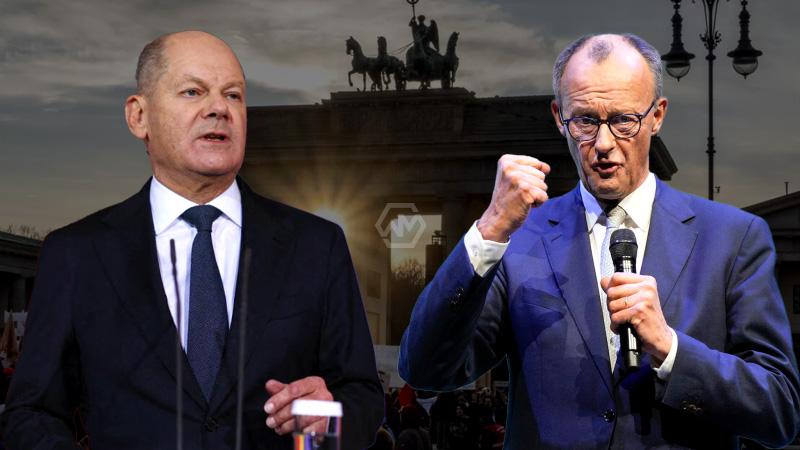- Germany holds a snap election after Chancellor Scholz’s coalition collapse.
- The far-right AfD is poised for a historic result, challenging traditional parties.
- Economic stagnation and migration policies dominate voter concerns.
Germany’s 2025 federal election is shaping up to be one of the most consequential in decades. With the CDU/CSU leading in the polls, the collapse of Olaf Scholz’s government has left the country at a political crossroads.
As polling stations close, the focus shifts to coalition-building. The CDU/CSU may seek alliances with the Greens or SPD, but deep ideological differences complicate negotiations.
Germany’s Election Signals a Political Shift Amid Uncertainty
Germany’s political landscape is experiencing a major shake-up, driven by economic struggles and rising far-right sentiment. The CDU/CSU leads the race, but forming a stable government remains a challenge. Meanwhile, the SPD, once Germany’s dominant force, is at risk of its worst-ever result, signaling a shift in voter sentiment.
The AfD’s growing influence has sparked intense debate over democratic norms and coalition politics. While mainstream parties have maintained a “firewall” against working with the far-right, their increasing electoral strength raises questions about the future of that strategy. This election could redefine Germany’s political alliances for years to come.
Migration has been a contentious issue in this election, especially after recent violent incidents linked to immigration policies. The AfD has capitalized on public discontent, calling for stricter measures, while other parties struggle to present a unified approach. This divide reflects broader tensions in German society over national identity and security.
Beyond domestic concerns, the election’s outcome will impact Germany’s role in the European Union. As Europe’s largest economy, Germany’s policy direction will influence EU stability, trade regulations, and relations with key allies like France and the U.S. The next chancellor will face significant challenges both at home and abroad.
Germany’s election marks a turning point in its political landscape. Whether it leads to stability or deepens divisions, the results will shape the country’s future for years.
“Democracy is not just the right to vote, it is the right to live in dignity.” – Naomi Klein. This election reflects voters’ struggle for economic security, fair governance, and national identity in an evolving Germany.



